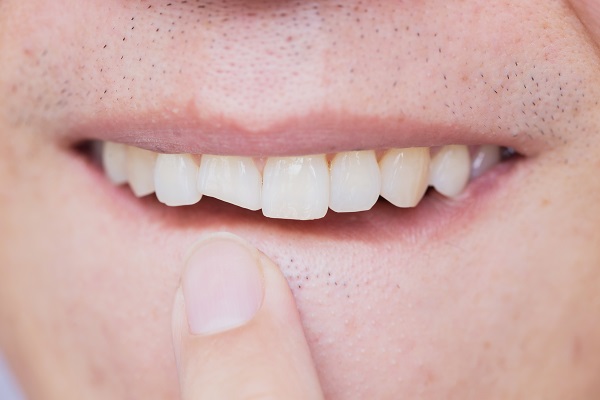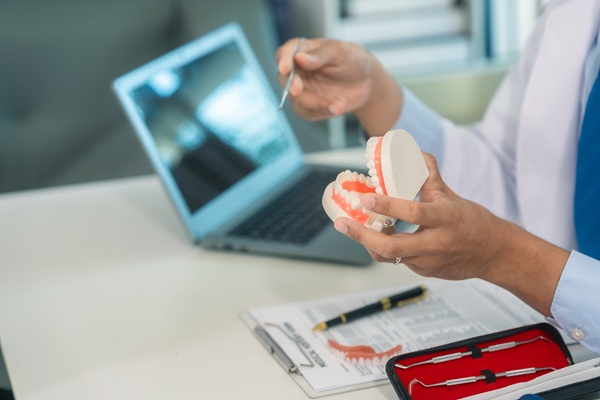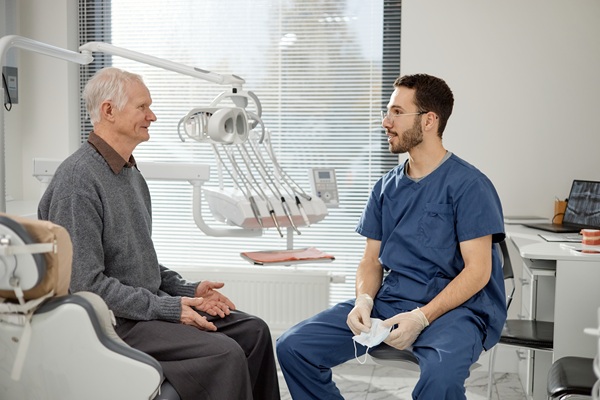What to Do If You Think You Have a Cracked Tooth

A Cracked Tooth can lead to increased sensitivity to hot and cold foods, and it can also lead to pain when eating. The toothaches that often accompany cracked teeth tend to be sporadic. This makes it more challenging to locate cracked teeth, especially when the damage is minimal.
Cracked teeth do not always lead to pain and discomfort. In some cases, the damage to a tooth is only to its appearance. However, such damage can still leave a tooth vulnerable to decay and infection, so it is best to have a dentist evaluate the tooth to determine if treatment is needed.
Determining if you have a cracked tooth
A cracked tooth not being treated can lead to more discomfort and pain down the road. However, cracked teeth do not always come with symptoms, so some people have no idea that they have a cracked tooth. Here are a few of the signs and symptoms that can let one know if a tooth is cracked:
- Swollen gum tissues around the damaged tooth
- Pain when biting down or chewing
- Teeth that are sensitive to sugary things
- On and off toothaches
- Tender gums around the damaged tooth
The most common ways that people end up cracking a tooth include:
- Biting down on hard foods or items
- Teeth grinding
- Trauma to the face
- A tooth being weakened by a large filling
- Sudden temperature changes in the mouth
Diagnosing cracked teeth
Dentists have a variety of tools at their disposal when it comes to treating chipped teeth. The first step involves diagnosing the extent of the damage done to the person's tooth. The dentist may:
- Perform a visual examination of the patient's teeth
- Talk to the patient about their dental history
- Use a tool called a dental explorer to find cracked edges on teeth surfaces
- Ask the patient to bite down on something
- Use dental dye to reveal cracks
- Examine the patient's gums for inflammation
- Take X-ray images of the patient's teeth (this does not always reveal cracks, but it does allow the dentist to detect issues present in the pulp chamber, which can be a sign that a tooth is cracked)
Our dentist recommends coming in for an evaluation if you think that one or more of your teeth might be cracked. Having the tooth treated by a dentist often brings an end to any pain and discomfort that the patient is experiencing.
Simple ways to manage a cracked tooth while waiting to see a dentist include:
- Keep the area clean, and rinse your mouth with salt water to clear debris stuck in the damaged tooth
- Use over-the-counter painkillers to manage any pain and discomfort
- Apply a cold compress against the cheek nearest to the damaged tooth; this should be done in 20-minute intervals on and off
We can fix your tooth
The longer you hold off getting your cracked tooth treated, the more challenging it becomes for a dentist to fix it. Call or visit our Aurora clinic to start the process.
Request an appointment here: https://www.grandviewdentalcolorado.com or call Grandview Dental at (303) 997-0232 for an appointment in our Aurora office.
Check out what others are saying about our dental services on Yelp: Cracked Tooth in Aurora, CO.
Recent Posts
Your general dentist will always emphasize the importance of oral health. Read on to learn about how preventive oral hygiene helps maintain good overall health. Many illnesses manifest themselves more visibly through the mouth. As a result, it is crucial to maintain oral health through oral hygiene and prevent dental issues.The following are some preventive…
General dentists are responsible for restoring and replacing teeth that are lost due to decay or accidents. Unfortunately, the teeth are prone to both, making it so that treatment is necessary. A common treatment used in general dentistry for tooth restoration and replacement is a dental bridge. Having a dental bridge placed can make life…
One of the best people to talk to about keeping good daily oral hygiene practices is your general dentist in Aurora. With their years of knowledge and experience with the latest technology and best practices, this is the best person to answer and guide a patient in the daily practices involved with a healthy smile.In…
General dentistry visits allow for routine dental care, as well as preventive measures. Patients of all ages can greatly benefit from regularly seeing a general dentist. Regular appointments give the dentist a chance to check for abnormalities and catch any warning signs early on. Preventive treatment can then take place to ensure good oral health…


